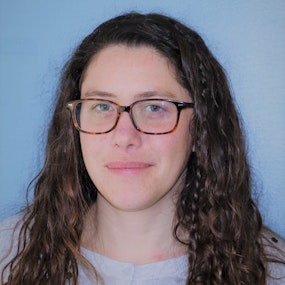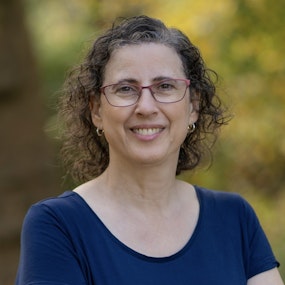ROBERT JOHNSON:
This is the award-winning Public Health Review Morning Edition for Monday, February 12, 2024. I'm Robert Johnson. Now, today's news from the Association of State and Territorial Health Officials.
DANIELLE OFRI:
They'll just say, "I don't know, I don't feel like it. I just don't, I just don't." I even have patients who don't want to make eye contact when they say that.
JOHNSON:
Patients in at least one New York City practice still have concerns about COVID vaccines, telling Dr. Danielle Ofri, they're not interested in another booster.
OFRI:
But lately, I've been trying to actually stop and like take on that gray area. So, "Hey, you know, how can you feel that way? Tell me, you know, what's on your mind." And people will say, "Well, I've had four, I've had enough." And so I say, "Hey, what makes you feel like it's enough? Where do you get that feeling of enough from?"
JOHNSON:
Ofri practices at Bellevue Hospital. She also writes books and is a clinical professor of medicine at NYU. She says many patients are concerned about what they hear from their providers and policymakers.
OFRI:
Many people feel like the medical profession and public health officials are playing down side effects. And so I think it's important to be very clear and as transparent as possible about what side effects are reported. But also with context.
JOHNSON:
Ofri says she often will bring up misinformation and disinformation, to see if that's what is driving patient concern.
OFRI:
I also sometimes remind them that there are actors out there who are deliberately muddying the waters and many stand to gain financially from getting clicks and likes by doing all kinds of you know, eye-catching things that click well but may not be true, and to at least kind of do the self stress test, "Am I responding to a specific thing, or just a vague unsettled feeling?"
JOHNSON:
Ofri talks about the lack of patient interest in COVID vaccines in an article for The New York Times. You can read her guest essay by clicking the link in the show notes.
Policies that support young families can reduce the chances of adverse childhood experiences. Paid leave, quality child care, and housing security all contribute to a more stable environment for caregivers and their children. ASTHO's Jessica Bissett says Colorado has taken several steps to promote housing security.
BISSETT:
They have prohibited security deposits that exceed two months rent, eliminated rental agreement terms that require tenants to waive certain rights, and require mediation prior to eviction when a tenant is receiving certain federal benefits.
JOHNSON:
Bissett says economic stability is equally important.
BISSETT:
Paid leave policies can also decrease the risk of child maltreatment and paid leave, specifically after the birth of a child, can decrease the risk of intimate partner violence in particular.
JOHNSON:
And finally, there's the benefit of quality childcare.
BISSETT:
Some policy solutions include workforce development, things like child educator programs, reducing barriers people might face to get the right training, and increasing pay for workers who complete certain education and training.
JOHNSON:
You can read more about how policy can support young families in a new ASTHO blog article. It's online now. We've got the link in the show notes.
Also today, learn how to build and retain a strong clerical workforce during a webinar this Thursday, February 15. Officials with the Georgia Department of Public Health will lead the discussion, you can sign up using the link in the show notes. Finally, this morning, another ASTHO webinar planned for next week will review new guidance on how to respond within the first three days after a nuclear detonation. Attendees will get an overview of 10 tactics described in the document. There's a link to the meeting page in the show notes.
Before we go, a reminder also to follow this newscast on your podcast player and connect with ASTHO on social media. We're on LinkedIn, Twitter, and Facebook. That'll do it for today. We're back tomorrow morning with more ASTHO news and information. I'm Robert Johnson. You're listening to the award-winning Public Health Review Morning Edition. Have a great day.






